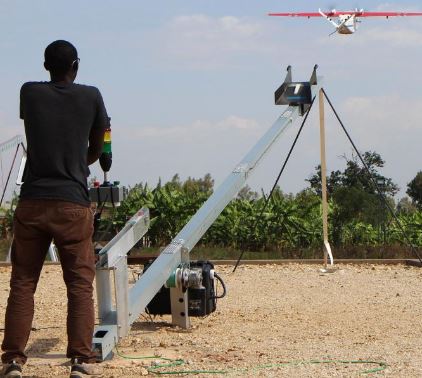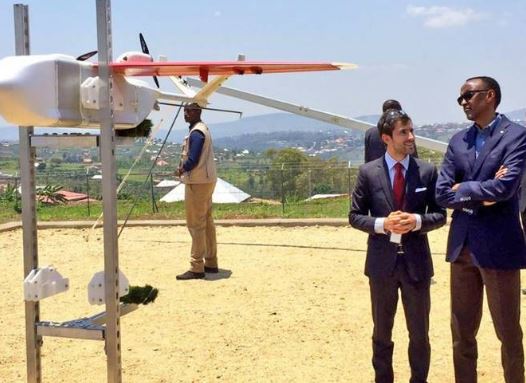This is how Rwanda uses drones to save millions of lives
Rwanda has launched the world’s first national drone delivery service that is expected to transport essential medical products to remote and rural health centres in the country.
Piloted by Zipline, an American robotics company, blood and plasma will be flown by autonomous drones to clinics in the rural western part of the country, where poor road conditions often delay time-critical delivery of medical supplies for hours or even days.
Once the program is in full swing in a few weeks, Rwanda plans to fly between 50 and 150 drones a day delivering blood and plasma to 21 clinics.
“During Rwanda’s lengthy rainy season, many roads wash out, becoming impassable or non-existent. The result is that all too often someone in need of a lifesaving transfusion cannot access the blood they need to survive,” explained Zipline in a statement.
A Zipline technician launches a drone in Muhanga, Rwanda. (Photo: Newsweek)
To request a blood drop-off, health care workers send a text message, and 30 minutes later a drone arrives.
Zipline’s drones do not land at the medical centers, but rather drop packages via disposable parachutes at the clinics’ receiving area.
During the launch, Rwanda’s President Paul Kagame said the use of unmanned commercial drones to transport essential medical products is a milestone for Rwanda in many respects.
The aircraft are launched from a catapult and fly below 500ft (152m) to avoid the airspace used by passenger planes.
The drones are powered by a nose-mounted battery and guide themselves using GPS location data.
President Paul Kagame during the drone launch. (Photo: Daily Maverick)
They fly at around 40 miles per hour and can travel about 90 miles round trip before needing to recharge.
They then send back information to both their base and to Rwandan air traffic control via a cellular connection.
The project is one of the many initiatives that the government is putting in place in line with the Smart Rwanda Master Plan 2020.
Commercial drone delivery programs have encountered obstacles elsewhere in Africa.
Morocco, Kenya and Uganda have all imposed bans or restrictions on drone operation, while unlicensed drone users in Ghana can face up to 30 years in jail




